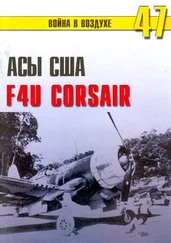‘Hassan Irlanda,’ said Turgut kindly. ‘In Turkey we have a saying – “patience is the key to Paradise.” We must all accept the fate that Allah decrees. Keep up your search for your sister, but pursue it in the knowledge that it may never reach a conclusion. Rest assured that your sister will have been treated well. She would have been classified as murtafa’at; that is, first class. Wherever your sister was brought ashore for sale, everything about her would have been recorded by the amina, the woman inspector who examined her. Even as a conscientious jeweller notes the qualities of a special gem, her good points, the nu’ut, and her defects, the uyub, will have been written down. Somewhere that record and description of your sister still survives. Find it and you will be on the trail of your sister. Or find someone who sailed with Hakim Reis on that corso or, better still, find Hakim Reis himself. Then ask why the vessels were separated and where the missing ship would have gone.’
Hector finished his meal in silence, turning over in his mind Turgut’s advice and, still troubled, was on the point of asking again whether he could visit the brigantine to enquire if anyone had heard of Elizabeth, when there was an order for the oarsmen to stand to their sweeps. Dunton reappeared on the aft deck. ‘The pilot must think the mist is due to lift soon,’ he said as he checked the preventer ropes which secured the great spar. ‘Or maybe he’s worried how far we’ve drifted in the mist. Strange currents around here, according to the store keeper’s assistant. He’s a local man from Sardinia and used to fish these waters before he was captured by the Turks, and became a rinigato like yourself. Tells me that the current can be strong enough to set a ship ten or fifteen miles in a day.’
A series of calls and commands was heard along the catwalk as Izzet Darya slowly got under way, the same shouts repeated from the accompanying brigantine, whose sweeps also began to rise and fall ponderously as the two ships nosed their way forward. Occasionally Dunton looked up at the mast top where the captain’s insignia, a long red and gold pennant, dangled listlessly. ‘A sea fret like this normally lies close to the water, like a blanket,’ he said to Hector. ‘On a tall ship, you can send someone to the mast head as lookout, and often he’ll be sitting up there in the bright sunshine with a blue sky above his head. Yet when he looks down past his feet, he can scarcely see the deck for the vapour. Ahha! There’s a patch of blue now.’
Hector followed his gaze, and indeed the mist was thinning. A glimpse of blue sky had appeared, and on the aft deck around him the daylight seemed to be growing brighter. ‘Shan’t be long now before we are clear of this,’ observed Dunton confidently. ‘Then it’ll be time for the brigantine to stand clear and take up her cruising station.’
But that manoeuvre was not needed. Half an hour later the two corsair vessels rowed their way out of the mist. In a few oar strokes they passed from the close damp haze and emerged into a bright open world with a sparkling calm sea of intense blue. Looking astern, Hector saw that the edge of the mist was like a sheer grey wall, yet scarcely higher than a ship’s mast. A sudden exclamation from the galley’s pilot made him swing round again.
‘Alhamdullilah,’ the pilot burst out, pointing ahead. There, no more than five miles away, was a ship. She was utterly becalmed. Hector had never seen a craft as large or ponderous. Like Hakim Reis’s corsair ship which had raided Ireland, the vessel was an outright sailing vessel. Her three tall masts were rigged with great square sails which, at that moment, hung slack and empty and useless. Amidships her lowest point was twice the height of the low-slung galleys, and the stern of the vessel rose far above the sea in a series of decks that formed a wooden castle. Even at that distance it was possible to make out a massive ornamental lantern, twice the height of a man, which crowned the tall stern. The gilding on the lantern glinted in the sunlight.
‘God’s Blood!’ muttered Dunton beside him. ‘That’s a royal ship, I wouldn’t wonder. Can’t make out her flags, but she could be Spanish or Dutch maybe. She’ll be a tough nut to crack.’
A hurried council was already forming up on the stern deck of Izzet Darya . The captain, his chief officer, the pilot and the aga of the janissaries clustered in a group, and Hector could overhear snatches of their conversation. The pilot was urging caution, warning that the strange ship was too powerful to attack. The aga of the janissaries, stroking his mustache and striking an attitude, retorted that if the pilot could bring the galley close enough for his soldiers to board, his janissaries would soon clear the foreigner’s decks. The galley’s chief officer, a grizzled Turk, said nothing but waited patiently for the captain to speak, and all the while the oarsmen kept up their steady beat, moving the great galley forward.
Turgut Reis gazed thoughtfully at the sailing ship. This was not a vessel he had seen before, though it did have a certain similarity to the warship that had brought the English ransom agent to Algiers. He wished he had brought his sketch of that ship with him, even though this ship was much larger and, as yet, showed no flag. If only he had that sketch, it might help him decide whether the stranger was a warship or some rich merchant vessel. He looked again at the distant vessel. She was no more than four miles away now, and still helpless and becalmed. The captain thought about his ill luck on the corso so far, the debts that awaited him when he returned to Algiers, and that he had only a few days’ supplies left before he would have to return to base. He thought, too, about the damage to his reputation if it was said that he had shirked a fight with a large infidel ship. He knew his pilot was a cautious man who would always advise care, just as he knew that the aga was certain to demand a direct attack and boast of the courage and the fighting spirit of his odjaks. The captain did not doubt that at close quarters the weight of numbers and the terrifying charge of the janissaries would win the day. But first he had to get Izzet Darya close enough to board the stranger.
‘They’re lowering their boats!’ It was his chief officer who spoke, excitement in his voice. Turgut squinted into the distance. Yes, it was true. There was activity on the stranger’s deck. They must have been shocked by the menacing sight of two corsair galleys emerging as if by magic from the mist, and heading towards them. Figures on deck were hurriedly lowering boats into the water, and a large boat which had been towed astern was being hauled closer so that oarsmen could scramble aboard. ‘They’re abandoning ship!’ said a voice. Turgut wondered if this could be true. Often the crew of a vessel attacked by corsairs would leave their ship and flee for safety in their small boats. They would head for the nearest coast where they would run ashore and hide rather than be taken captive. But the Sardinian coast was too far for the small rowing boats to outrun the brigantine. ‘No,’ said another voice, ‘they’re trying to tow their ship out of trouble.’ That was more likely. The ship’s longboat and its tenders were moving to the bow of the becalmed stranger, and hawsers were being lowered to them. Maybe they were hoping to outpace their pursuit until darkness covered their escape.
The captain made up his mind. ‘Allah concealed us from our enemy until the time was ripe! Now we attack!’ he called out. Turning, he gestured to the accompanying brigantine that both ships were to advance at full speed and close with their prey from directly astern. Seeing this, the oarsmen in the waist of Izzet Darya began to cheer a rippling ‘Ya Allah! Ya Allah! Ya Allah!’ as they laid on their oars and began to increase the tempo of their stroke.
Читать дальше








